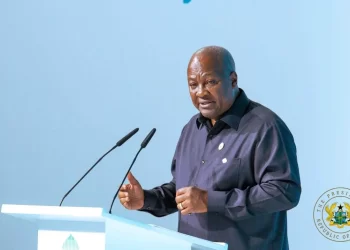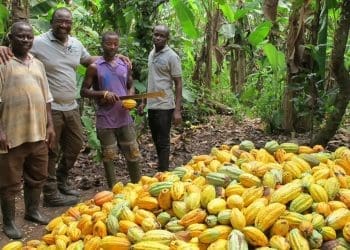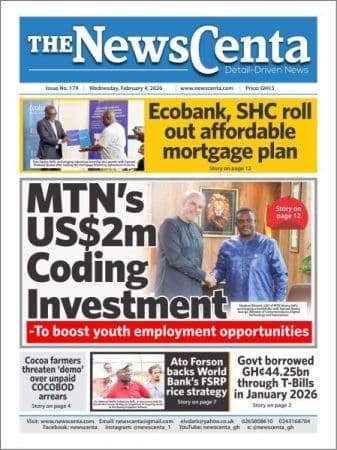President John Dramani Mahama has announced a bold incentive scheme that will see whistleblowers receive 10% of all illegally acquired gold or its cash equivalent recovered through their credible information to the Ghana Gold Board (GoldBod) taskforce.
This major announcement was made during the official launch of the GoldBod taskforce in Accra, a move the President described as a decisive step toward reclaiming Ghana’s mineral wealth from the grip of illegal operators and smugglers.
“Whistleblower channels are in place, with informants eligible to receive 10% of the seized gold or its cash value,” President Mahama declared to applause.
“So, whistleblowers, get ready. If you blow the whistle and gold or money is recovered, you will get 10%.”
The 10% incentive to whistleblowers forms part of a broader crackdown against illegal gold trading and smuggling, which has cost the Ghanaian economy billions of dollars in recent years.

President Mahama’s message was clear: citizens who act in the national interest by exposing illegal gold activities will be rewarded, and offenders—whether local or foreign—will face severe consequences.
Act 1140 takes full effect with tough sanctions
President Mahama emphasized that the GoldBod Task Force would be the enforcement arm of the Ghana Gold Board Act, 2025 (Act 1140), which he signed into law earlier this year.
Under the new law, unlicensed gold trading is criminalized, and foreigners are explicitly barred from purchasing gold within Ghana’s local markets.
GH₵2.4m penalties or 5 to 10 years
Offenders face stiff penalties, including fines ranging from GH₵600,000 to GH₵2.4 million and jail terms of five to ten years.
“This is not an empty warning,” President Mahama stated. “Any individual or entity found flouting this law will be sanctioned. Abuse of authority will not be tolerated.
Any officer found engaging in misconduct will face immediate sanctions, including dismissal, prosecution, and forfeiture of all entitlements.”
He made it clear that the law would be applied equitably, regardless of the offender’s nationality or status.
“This is about the future of Ghana. Anyone—local or foreign—who undermines our efforts will be held accountable.”

Turning policy into action: The GoldBod Task Force
The President described the inauguration of the GoldBod Task Force as a pivotal moment for Ghana’s mineral sector, marking a transition from legislation to real-time enforcement.
The Task Force, he revealed, is not just a security initiative but a strategic intervention in Ghana’s economic recovery and institutional reform efforts.
“Today, we move from policy to implementation,” he said.
“This Task Force is a strategic arm of a national economic transformation project, purposefully designed to restore integrity, accountability, and value to Ghana’s gold sector.”
The team comprises vetted personnel from National Security, the military, and other security agencies.
Members have undergone polygraph testing, special training, and an extensive orientation on the provisions of Act 1140 to ensure strict compliance and professionalism.
A new era of centralised and transparent gold trade
President Mahama said Ghana, despite being Africa’s top gold producer and the sixth-largest globally, has long failed to benefit adequately from its vast mineral resources.

He expressed confidence that the Ghana Gold Board will help change that narrative.
“With GoldBod, we are asserting our sovereignty over our mineral wealth,” he said.
“We are shifting from raw extraction to value retention. Like cocoa, gold will now be consolidated, traded, and exported through a centralized, transparent system.”
The GoldBod is now the exclusive buyer and exporter of all gold produced in Ghana, except gold from large-scale mining firms.
It is also tasked with regulating and participating in the entire gold value chain—from artisanal mining to smelting, assaying, and export.
Reforming the small-scale mining sector
Since its interim establishment in January 2025, the Ghana Gold Board has made remarkable progress, especially in the artisanal and small-scale mining (ASM) sector.

The President disclosed that by May 2025 alone, the Board had exported 11 tonnes of gold valued at $1.1 billion.
Total exports from the ASM sector reached 51.5 tonnes, valued at about $5 billion—a 95% increase over the same period in 2024.
For the first time in the nation’s history, small-scale mining exports surpassed those from the large-scale sector, strengthening Ghana’s foreign reserves, improving the balance of payments, and helping to stabilize the Cedi.
“These results speak volumes,” President Mahama said.
“They reaffirm our belief that, when formalized and supported, artisanal miners can become powerful allies of national development.”
Tackling smuggling and black-market operations
Despite the progress, President Mahama acknowledged that significant challenges remain.
Chief among them is the persistent threat of gold smuggling and black-market trade, which he said continues to siphon billions from the national economy.

“A recent report revealed a 229-metric tonne discrepancy between Ghana’s official gold export records and the import records of our trading partners—equivalent to over $11.4 billion in losses over five years,” he lamented. “This cannot continue.”
He explained that the establishment of the Ghana Gold Board and the inauguration of the Task Force were designed to dismantle this illicit economy.
“Today’s launch signals our readiness to act decisively,” he stressed.
A digital-first licensing regime
Mr. Sammy Gyamfi, Chief Executive Officer of the Ghana Gold Board, also addressed the gathering, outlining the progress made since the institution’s transformation from the Precious Minerals Marketing Company (PMMC).
Mr Gyamfi announced that the GoldBod had already issued more than 300 gold trading licenses through a digital and transparent platform.
These licenses are now mandatory for anyone involved in gold-related activities—including buying, aggregation, transportation, refining, smelting, and jewelry production.
Operating without a valid license, he reiterated, will attract fines and jail time. “We are cleaning up the industry,” he said.
“Every gram of gold must now be traceable and accounted for.”
Upholding ethics and discipline
Mr Gyamfi also delivered a firm warning to Task Force members, stressing the zero-tolerance policy for misconduct and abuse of power.
“With the support of the President, we’ve provided the necessary orientation, training, logistics, and resources for the Task Force to operate effectively and fearlessly,” he said.

“We expect nothing but professionalism and patriotism from you. We will protect those of you committed to doing your job. But if anyone tarnishes the image of this institution or the country, we will deal with you ruthlessly.”
A national mission to protect Ghana’s gold
The launch of the GoldBod Task Force and the accompanying reforms mark a major milestone in Ghana’s mission to regain control over its gold sector and maximize the benefits of its mineral wealth.
President Mahama concluded by urging all Ghanaians to support the new regime and play their part.
“This is not just a government program—it is a national duty,” he said.
“Let us work together to build a gold sector that is clean, fair, profitable, and proudly Ghanaian.”












